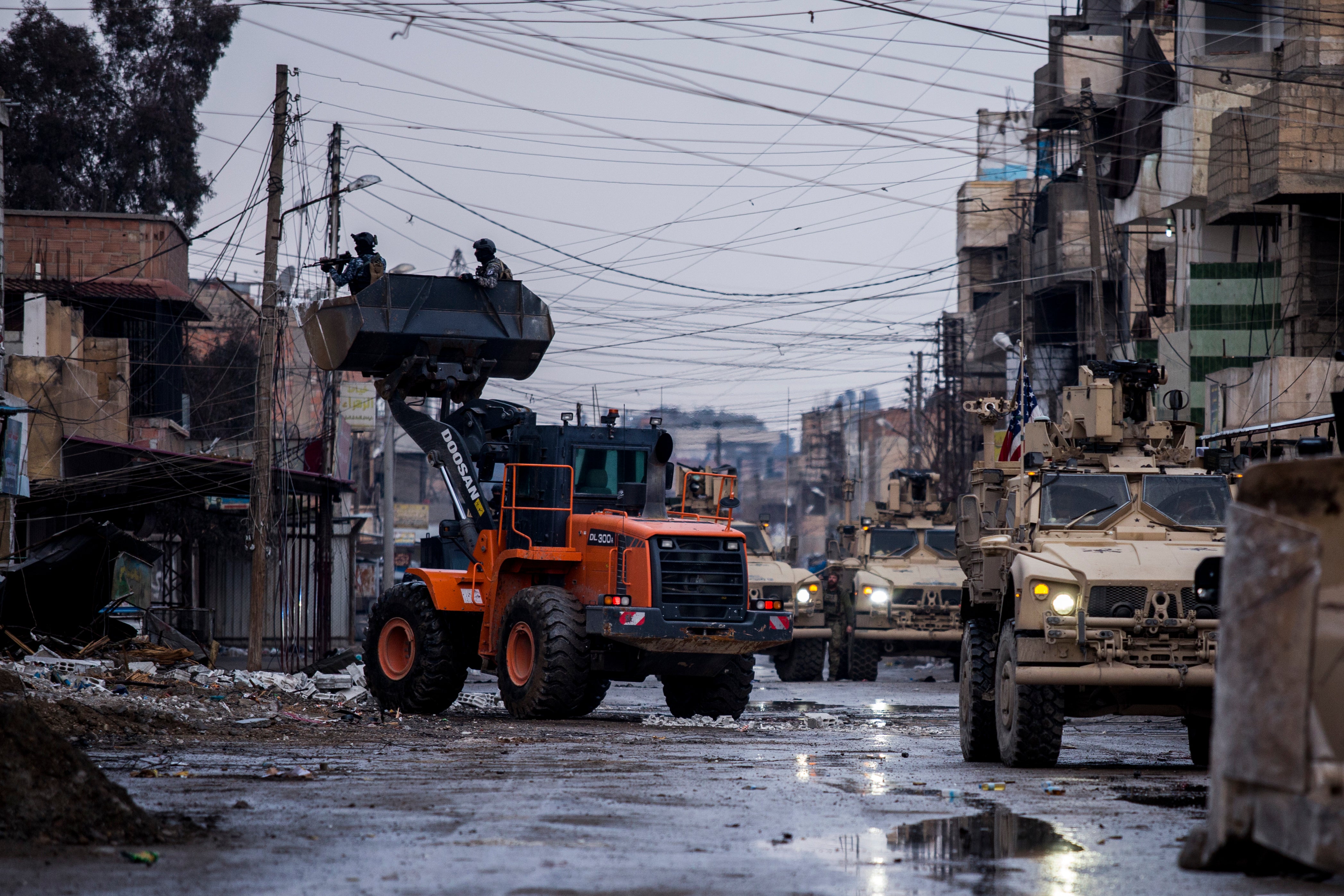US-allied Syria force says it foiled major IS comeback plot
A U.S.-backed Kurdish-led force says that a prison overrun by the Islamic State group in northeastern Syria is now fully under its control

Your support helps us to tell the story
From reproductive rights to climate change to Big Tech, The Independent is on the ground when the story is developing. Whether it's investigating the financials of Elon Musk's pro-Trump PAC or producing our latest documentary, 'The A Word', which shines a light on the American women fighting for reproductive rights, we know how important it is to parse out the facts from the messaging.
At such a critical moment in US history, we need reporters on the ground. Your donation allows us to keep sending journalists to speak to both sides of the story.
The Independent is trusted by Americans across the entire political spectrum. And unlike many other quality news outlets, we choose not to lock Americans out of our reporting and analysis with paywalls. We believe quality journalism should be available to everyone, paid for by those who can afford it.
Your support makes all the difference.A U.S.-backed Kurdish-led force said Monday that a prison overrun by the Islamic State group in northeastern Syria was now fully under its control, thwarting a dangerous plot by the extremists to launch further, multiple attacks across the volatile region.
It also appealed for the international community's help in taking responsibility for the tens of thousands of IS fighters and their families in detention centers and camps under its control.
The Syrian Democratic Forces said more than 120 of their fighters and prison workers died in the 10-day standoff at the Gweiran prison, also known as al-Sinaa prison, which houses at least 3,000 Islamic State group detainees. Some 374 IS militants, including the initial attackers, were also killed, it added.
The Jan. 20 assault on one of the largest detention facilities in Syria has turned the city of Hassakeh into a conflict zone and forced thousands of residents to flee. The fighting drew in the U.S.-led coalition, which carried out airstrikes and deployed American personnel in Bradley Fighting Vehicles to the scene.
It was the biggest military operation by the extremist group since the fall of its self-declared caliphate in 2019 and came as the militants staged deadly attacks in both Syria and Iraq that stoked fears that IS may be staging a comeback.
At a press conference Monday, SDF commander Nowruz Ahmad said the IS prison attack aimed at liberating a number of terrorist detainees, but also was part of a broader plot that IS had been preparing for a long time.
According to seized documents and confessions of some of the attackers, the extremist group had planned attacks on other neighborhoods in Hassakeh, the town of Shaddada and areas of Deir el-Zour in eastern Syria. Also planned were simultaneous attacks on the al-Hol camp, which houses thousands of families of IS members.
“They (IS) wanted to launch a massive attack on the region, and once again to spread their terror and impose darkness on the people of the region and revive the terrorist organization once again,” Ahmad said.
She also accused neighboring Turkey, an archenemy of the Kurds, of facilitating and assisting in the organization of the prison attack but did not provide evidence.
Ahmad said the attack demonstrated the need for radical solutions to the ongoing presence of tens of thousands of IS detainees and their families in northeastern Syria, as well as expediting the trial and prosecution of IS terrorists.
In Washington, State Department spokesperson Ned Price commended the SDF for their effective response to the prison attack.
IS's "desperate and violent tactics are a grave reminder to the world that the terrorist group remains a threat that can and must be defeated,” he said in a statement.
“Due to the effective response of the SDF, in partnership with U.S. and Coalition forces, senior ISIS leaders were captured or killed during the attempt to free detained ISIS members from detention” he added.